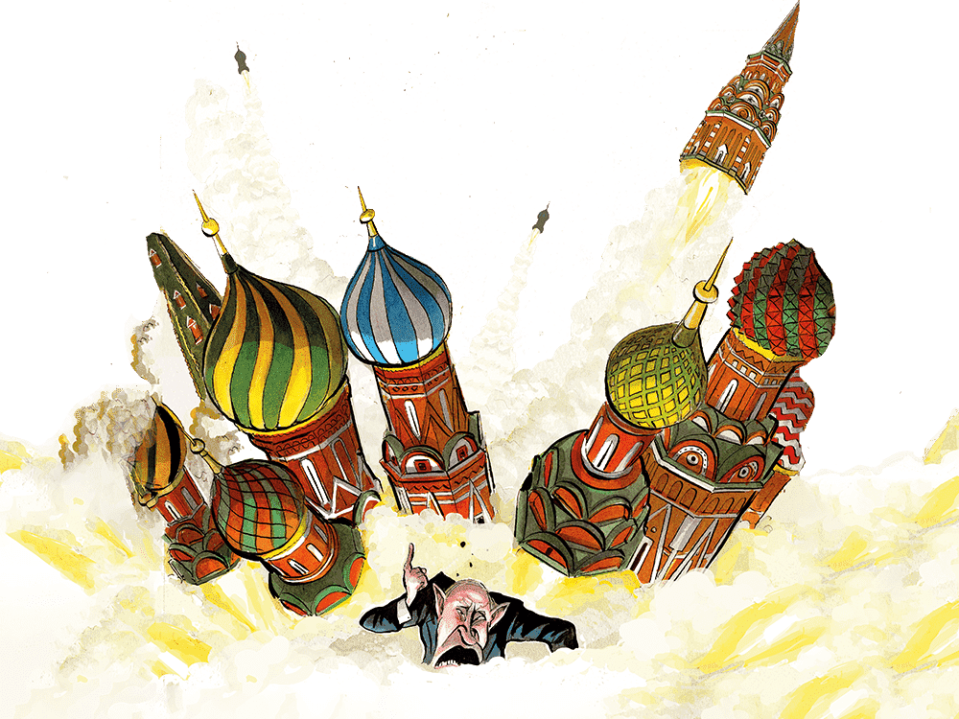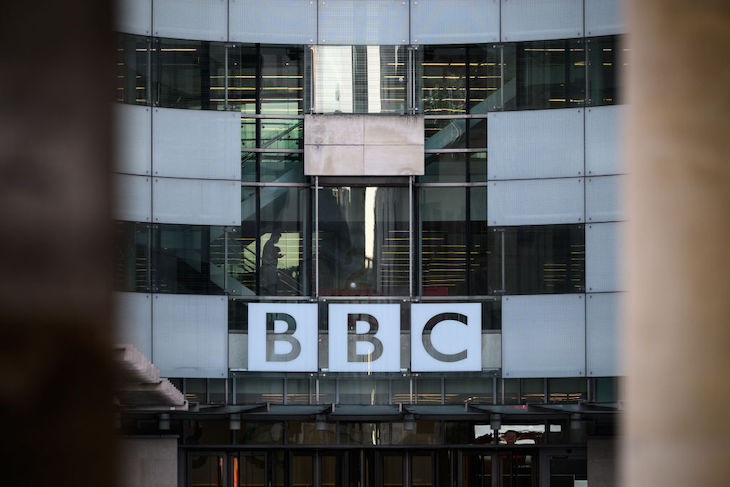US special envoy Steve Witkoff was back in Moscow today to meet with Vladimir Putin, ahead of Donald Trump’s Friday deadline for Russia to make peace with Ukraine. This was Witkoff’s fifth meeting with Putin this year. Similar to his previous audiences with the Russian president, today’s one-on-one lasted for three hours. While broadly we know that the two will have been meeting to discuss the Ukraine war, the details or results of the meeting so far remain unknown: according to Russian presidential aides, the Kremlin will hold off from issuing public comments on what transpired until Witkoff has had a chance to brief Trump.
The President’s increasing frustration and anger with Russia’s attacks on Ukraine has been notable in the last month or so
True to its word, the Kremlin has, so far, given little away. Foreign policy aide Yuri Ushakov, who was in the room, called it ‘a very useful and constructive conversation’. And yet, before the US special envoy has even had the chance to touch down on home soil, the first signs of how constructive the discussions really were may already be emerging.
As part of Trump’s ultimatum to Putin, the US president had suggested that should the Kremlin fail to halt its invasion of Ukraine by Friday he would consider imposing further sanctions on Russia, including so-called ‘secondary sanctions’ on countries still buying Russian oil. Now, mere hours after Putin and Wiktoff’s meeting ended, Trump has signed an executive order slapping India – the world’s second-largest buyer of Russian oil after China – with additional 25 per cent tariffs for ‘directly or indirectly importing Russian Federation oil’. The new duties will kick in 21 days from now.
The President’s increasing frustration and anger with Russia’s attacks on Ukraine has been notable in the last month or so, with Trump most recently calling the Kremlin’s missile attacks ‘disgusting’.
And yet there are few signs that Putin is ready to end his ‘special military operation’. Anonymous sources from within the Kremlin have suggested that, with Russian troops slowly advancing across Russian territory, Putin doesn’t currently feel the need, or desire, to bend to Trump’s demands to stop – despite his army’s heavy troop losses. The Russian army currently controls approximately a fifth of Ukrainian territory. Putin has staked his political life – and, given Moscow’s descent into mafiocracy under his rule, potentially his actual life – on winning this war. He reportedly thinks that, were the conflict to stop now, it would be a difficult sell to the Russian public, and more importantly to the nationalist military hawks in his inner circle.
As such, it is unlikely that Putin will move from his maximalist conditions for ending the war any time soon. We have heard the Russian president repeat these plenty of times over the past three and a half years: among them are a promise for Nato not to expand eastwards into Ukraine and the recognition of the four illegally annexed regions of Donetsk, Luhansk, Zaporizhia and Kherson as Russian. Kremlin sources have suggested that only once Russian forces have captured those four regions in their entirety will Putin be willing to seriously engage in peace negotiations.
Nevertheless, the Kremlin recognises that it has an unpredictable sparring partner in Trump. Putin has reportedly considered proposing an aerial ceasefire in Ukraine as a means of throwing the US President a bone. A pause in aerial bombardments would undoubtedly be welcomed in Ukraine, which came under a record number of drone and missile attacks from Russia last month: more than 6,000 drones were directed at Ukrainian territory by Russian troops, an increase of 16 per cent on June. Any such proposal by Putin should, however, be taken with a pinch of salt – not least because Russia has agreed to several ceasefires, including a three-day pause in May, which it subsequently went on to break.
The question now is whether Trump has the stomach to make good on his threats to sanction Russia and those still buying its oil. Will he reignite his tariff war with China by slapping it with the same Russian oil-related sanctions he has inflicted on India? The fact it was Trump who blinked first in the trade dispute that flared up between the US and China earlier this year doesn’t instill a huge amount of confidence that the American president will hold his nerve – not least when this time there is the accompanying risk of a global spike in oil prices as a result.
Trump is expected to call his Ukrainian counterpart Volodymyr Zelensky imminently to discuss Witkoff and Putin’s meeting. The ball is now firmly in the US President’s court: will he follow through with his ultimatum to crush Russia’s war machine or will he allow Putin to call his bluff?








Comments